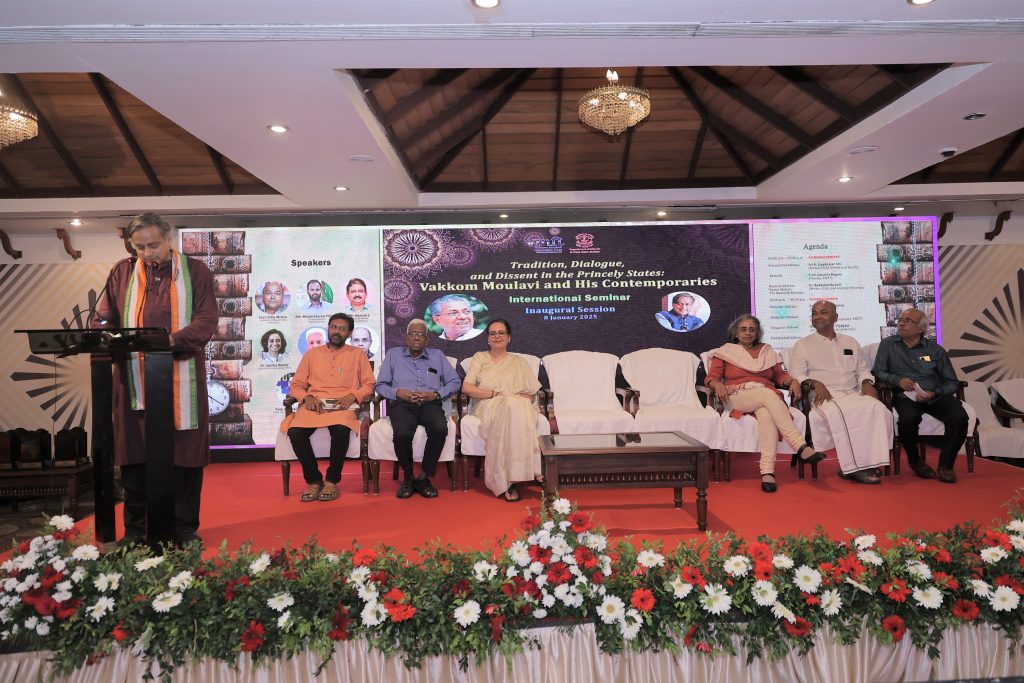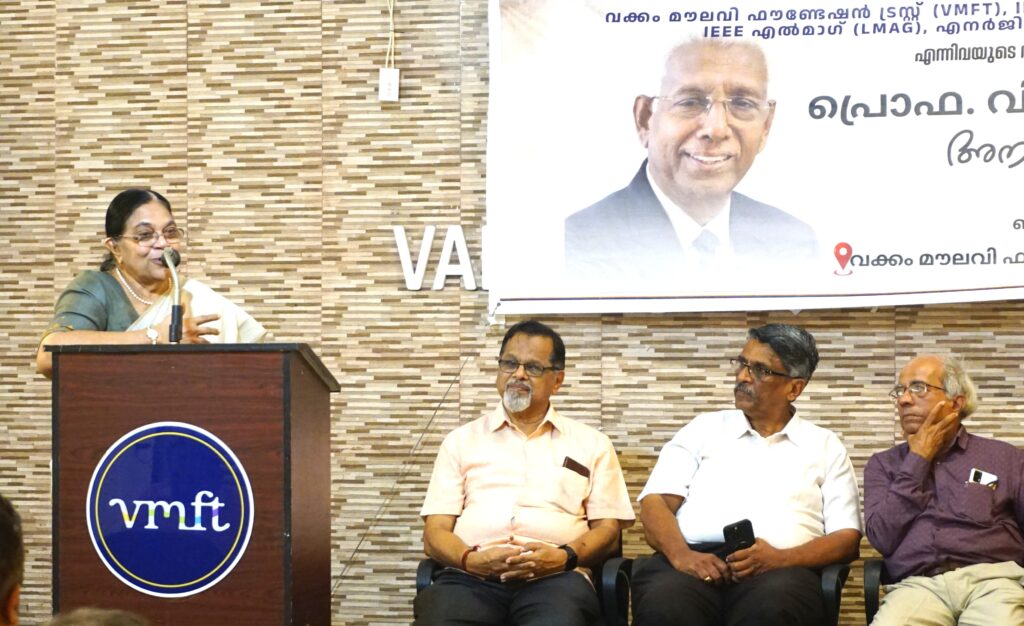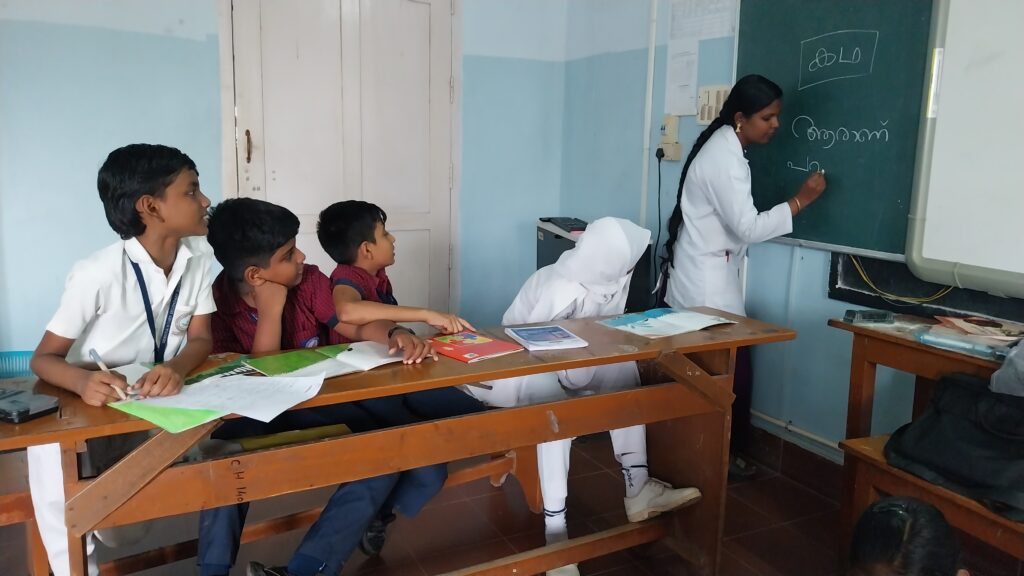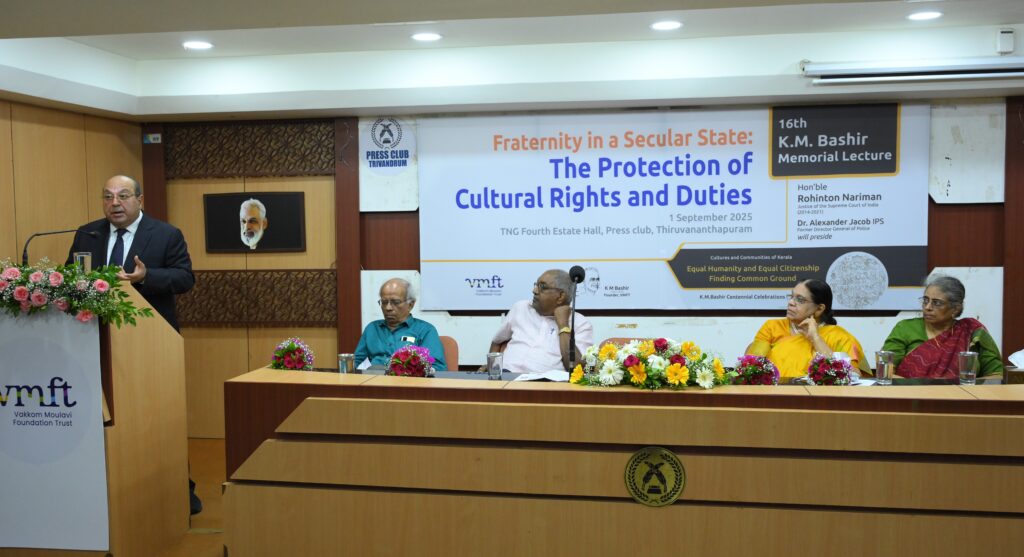Thiruvananthapuram became a hub for international scholarship as the Vakkom Moulavi Foundation Trust (VMFT) hosted a landmark global conference from January 8–10, 2025 at the Department of Islamic and West Asian Studies of the University of Kerala. Titled “Tradition, Dialogue, and Dissent in the Princely States: Vakkom Moulavi and His Contemporaries,”the event brought together scholars from India and across the world to explore the life and legacy of one of Kerala’s pioneering social reformers and his connections to princely state reforms and global Islamic currents. The conference also emphasized the role of past reformers in shaping progressive policies, highlighting how their contributions can serve as a guide to addressing contemporary social concerns through a secular approach.
VMFT is committed to creating knowledge systems that contribute to policy discussions by critically examining Kerala’s past reform movements. While the focus of the conference was on Vakkom Moulavi, his ideas were explored in the larger context of Kerala’s diverse reform movements and the reformist currents in the princely states—an area often overlooked in mainstream Indian history. The foundation believes that Kerala’s early reformers laid the groundwork for the state’s progressive transformation, and their ideas continue to offer valuable lessons for contemporary social change. Kerala has increasingly become a center of interest for international scholars, and VMFT has played a crucial role in facilitating this engagement. By bringing together thought leaders from across the globe, VMFT has positioned itself at the forefront of intellectual debates on what we can learn from Kerala’s rich history of social reform movements and how these insights can shape future policies.
A Grand Inauguration with Thought Leaders
The conference opened with an inaugural session where distinguished speakers set the tone for the discussions that followed. Former bureaucrat and scholar Sri K. Jayakumar underscored the importance of revisiting reformers like Vakkom Moulavi to better understand India’s democratic evolution. Dr Shashi Tharoor lauded Moulavi’s progressive vision, particularly his efforts in promoting women’s education among Kerala’s Muslim community—a movement that played a crucial role in the state’s high literacy rates today. Dr Rakhshanda Jalil’s keynote address on Hasrat Mohani set the stage for in-depth discussions on reformist voices often ignored in mainstream historical narratives.
Vakkom Moulavi’s Impact on Journalism, Education, and Reformist Thought
Vakkom Moulavi was a pioneering figure in Kerala’s intellectual and journalistic history, using the press as a tool for social critique and reform. His fearless journalism, exemplified in Svadeshabhimani and Deepika, addressed issues related to governance, ethics, and social change. He also played a crucial role in advancing literacy, particularly among Muslim women, through his publication al-Islam. Dr Mahmood Kooria (University of Edinburgh) emphasized how Moulavi sought to bridge linguistic and script barriers within the Muslim community, fostering greater access to knowledge.
Beyond Kerala, Moulavi’s engagement with transregional Islamic reform movements was explored by Dr Roy Bar Sadeh (University of Manchester), who examined his connections to the Cairo-based periodical al-Manar. This journal, founded by Rashid Rida, was influential in shaping modernist Islamic thought across South Asia. Moulavi’s engagement with such global intellectual currents positioned him as a key intermediary between Kerala’s reformist movements and broader Islamic discourses.
Princely States and Progressive Thought
The princely states of India served as important sites for social and political reform, often functioning outside direct British colonial rule. These semi-autonomous regions allowed for experimentation with progressive policies while balancing tradition and modern governance. Reformers in princely states like Bhopal, Rampur, and Hyderabad played key roles in modernizing education, advancing women’s rights, and promoting religious reform. Dr Siobhan Lambert-Hurley (University of Sheffield) presented her research on Sultan Jahan Begum of Bhopal, highlighting how she balanced Islamic traditions with modern scientific knowledge to advance education and public health. Dr Afsar Mohammed (University of Pennsylvania) traced the rise of a ‘New Muslim’ identity in Hyderabad, shaped by urbanization, print culture, and gender reform. Dr Razak Khan (Free University, Berlin) challenged male-centric narratives of reform by shedding light on how Muslim women in princely states used the legal system to assert their rights. Dr Chitralekha Zutshi discussed the formation of Muslim identity in Kashmir during the early 20th century, situating it within the region’s historical, political, and religious transformations. Similar to the reformist currents in Travancore, where Vakkom Moulavi and others championed education, journalism, and religious reform, princely states provided a space for intellectual debates and progressive movements that shaped modern Muslim identity in India.
Social Reform Movements: Then and Now
A dynamic roundtable discussion on Social Reform Movements in Travancore brought together leading scholars to discuss Kerala’s rich reformist history. Experts including Dr Ajay Sekher (Sree Sankaracharya University of Sanskrit), Prof. Udaya Kumar (JNU), Dr Sanal Mohan (MG University), P.K. Yasser Arafath (University of Delhi), and Dr Vinil Paul (Fatima Mata College) analyzed how figures like Sree Narayana Guru, Poyikayil Yohannan, Ayyankali, and Makti Thangal redefined religious and social structures through education, linguistic reform, and public activism. Through their pioneering work in education, linguistic reform, and public activism, these figures laid the foundations for Kerala’s progressive transformation, challenging caste hierarchies and advocating for social justice in ways that remain relevant today.
Dr Ajay Sekher initiated the discussion by highlighting Kerala’s Buddhist heritage and its influence on social reform movements. He traced the historical significance of Narayana Guru’s engagement with Buddhist philosophy, particularly his 1918 visit to Sri Lanka, where he declared that his religion aligned with the Buddha’s teachings. Prof. Udaya Kumar explored Narayana Guru’s linguistic and philosophical interventions, emphasizing his innovative use of Malayalam, Tamil, and Sanskrit to articulate a vision of social equality. Religion as māṭam (opinion) was framed as a fluid set of beliefs rather than a rigid institution. Prof. Udaya Kumar also discussed Dr Palpu’s active petitioning for the rights of the Ezhava community, which played a key role in Kerala’s social reform movement.
Dr P. Sanal Mohan, Professor at the School of Social Sciences at MG University, Kottayam, and author of the seminal work on slavery and modernity, spoke about the social reformer Poikayil Yohannan, also known as Poikayil Appachan. Poikayil Appachan developed a unique theological vision centered on the history of slavery in Travancore. His hymns and oral traditions positioned Christianity as a potential avenue for Dalit liberation while also critiquing the caste-based exclusions within missionary movements.
Dr P.K. Yasser Arafath’s discussion on Makti Thangal highlighted a distinct vision of modernity for Malabar’s Muslim community. Language played a crucial role in Thangal’s vision of reform. The discussion underscored the complexity of his thought, which simultaneously engaged with and critiqued colonial rule and redefined what it meant to be a “Parishkari Muslim” in 19th century Travancore.
Dr Vinil Paul’s discussion focused on Ayyankali’s activism which was centered on democracy and access to public spaces. By reframing Ayyankali’s contributions as a fight for democratic inclusion rather than caste reform alone, Paul highlighted Ayyankali’s enduring relevance in contemporary discussions on social justice and citizenship.
The discussion revealed that social reform in Travancore was not a monolithic process but a contested and multi-faceted one. Reformers approached change in diverse ways—somechallenged caste hierarchies through legal petitions, others redefined religious identities, and many used language as a tool for empowerment. Their efforts reflected a broader struggle to reshape Kerala’s social fabric, balancing tradition with new ideas of justice and equality.
A Lasting Impact
The conference was not just an academic exercise but a reaffirmation of VMFT’s commitment to a secular and inclusive approach to social history. By revisiting figures like Vakkom Moulavi through contemporary lenses, the discussions provided valuable insights for addressing today’s social challenges. The event marked a significant step in bringing Kerala’s intellectual traditions into global conversations, ensuring that Moulavi’s transformative ideas continue to inspire new generations.
For further insights, read Dr Dilip Menon’s article, Writing an Inclusive History of Kerala: Seminar on Vakkom Moulavi, in The News Minute. His analysis places Moulavi’s work within the broader currents of Islamic reform in the Indian Ocean world, highlighting how his ideas transcended regional boundaries and contributed to larger intellectual debates.
vakkommoulavi #kerala #socialreforms #islamicreforms #democracy



